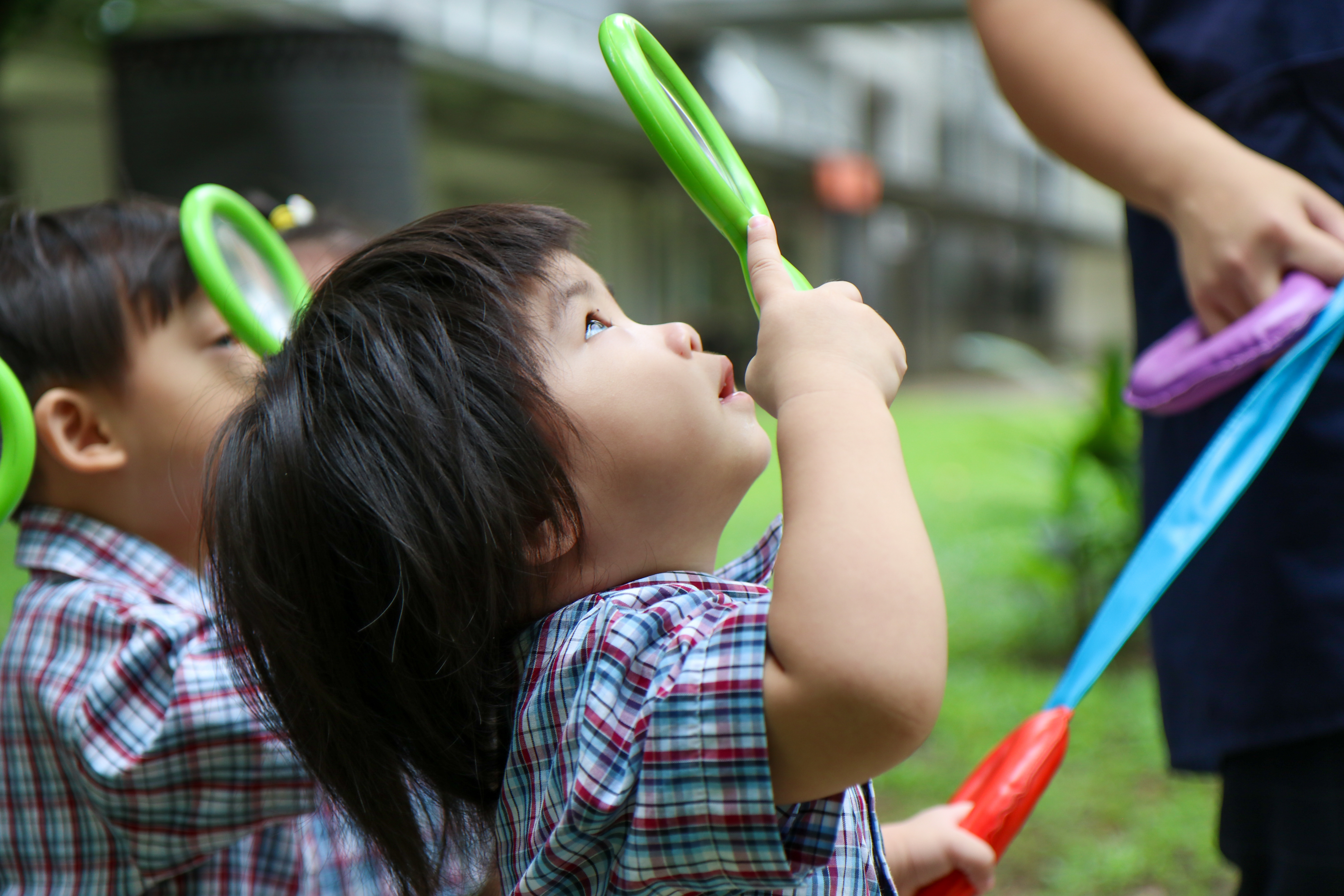.jpg)
E-Bridge Pre-School
E-Bridge Pre-School, part of the trusted EtonHouse Group, is an Anchor Operator and has been in operation since 2014. We provide high-quality childcare with a trusted programme for children aged 2 months to 6 years across 24 centres.
Embarking on the preschool journey is an exciting milestone for both parents and children alike. However, amidst the anticipation, it is not uncommon for young children to experience a wave of separation anxiety when the time comes for drop-offs.
As a caring parent, it can be heart-wrenching to see your child clinging to you with tears streaming down their face but rest assured that you are not alone in this journey. Countless parents have faced similar situations, and with the right strategies, you can help your child overcome this obstacle and thrive in their preschool years.
Keep reading for effective coping techniques that will support your child's emotional well-being and set the stage for a smooth transition into the world of preschool in Singapore.
1. Give the teacher a heads-up
One simple tip that can make a significant difference is giving your child’s preschool educator a heads-up. By sharing information about your child's anxiety and specific needs, you create a partnership with the educator that fosters a supportive and understanding environment for your little one.
Share any relevant information about your child's personality, triggers, and coping mechanisms. The best preschool educators will adapt their approach accordingly, ensuring your child feels heard and understood from the very start. This may involve implementing personalised strategies such as a special goodbye routine, offering comfort objects, or allowing for extra time to settle in.
2. Set up playdates with new classmates
Setting up playdates with your child's new classmates can be a game-changer in fostering familiarity, building friendships, and easing the transition into the preschool environment. This is an opportunity for your child to interact with their peers in a more relaxed and informal setting.
To get started, reach out to the preschool or connect with other parents to arrange playdates with classmates. Choose a convenient location, such as a park or a play area, where children can engage in unstructured play and get to know each other in a comfortable environment. Start with smaller groups or one-on-one playdates to allow your child to build trust and confidence gradually.
Learn more: Why Is Play Important In Your Child's Early Years?
3. Practise being apart
Gradually introducing and practising separations in a supportive and controlled manner empowers your child to develop resilience and confidence. Begin by practising short separations in familiar environments. For example, encourage your child to spend a few minutes in a separate room or engage in independent play while you remain nearby.
You can also encourage your child to choose a special object, such as a stuffed animal or a family photo, to bring along during separations. This transitional object is a comforting reminder of home and loved ones, providing a sense of familiarity and emotional support in preschool.
4. Establish a goodbye routine
Saying goodbye can be a challenging and emotional moment but establishing a routine provides your child with a sense of security, predictability, and comfort during separation. Select a simple, meaningful ritual that you and your child can engage in during each goodbye. This could be a special handshake, a goodbye song, or a loving phrase that you say to each other. The key is consistency — repeating the same ritual daily helps your child associate it with a sense of security and familiarity.
Just as the goodbye routine is important, so is the reunion. When you return to pick your child up from preschool, greet them warmly and engage in a joyful reunion ritual. This helps reinforce the idea that separations are temporary and that you always return as promised.
5. Stay upbeat
Your emotional state as a parent can impact your child's experience and ability to cope with separation anxiety. Maintaining a positive and upbeat demeanour gives your child confidence and reassurance, which will help them navigate separations with greater ease.
Display confidence and optimism when discussing and preparing for separations. Try to use positive language and express excitement about the activities and experiences your child will have in preschool. Your attitude can be contagious, and your child may adopt your optimistic outlook.
Learn more: Boosting Your Toddler's Confidence: Practical Tips for Parents
6. Be on time for pick-ups
Being punctual for pick-ups holds greater value than you think, especially when your child is dealing with separation anxiety. When you arrive on time for pick-ups, you provide a consistent and secure anchor for your child. They anticipate your arrival and feel reassured when you are there to bring them back into your care around the same time every day.
Furthermore, being timely allows you to dedicate quality time to reconnect with your child after a full day in preschool, offering reassurance and allowing you to engage in meaningful interactions. This uninterrupted time aids in transitioning from the separation experience to a state of emotional security and connection.
7. From Tears to Cheers, Preschool Separation Conquered
At E-Bridge Pre-School, we understand the significance of a smooth transition for preschoolers grappling with separation anxiety. Our dedicated team of educators is committed to providing a nurturing and supportive environment that eases the worries of both children and parents.
Through careful planning and individualised attention coupled with expertise in child development and deep empathy, our educators ensure that every child feels seen, heard, and understood during this crucial phase of their preschool journey.

